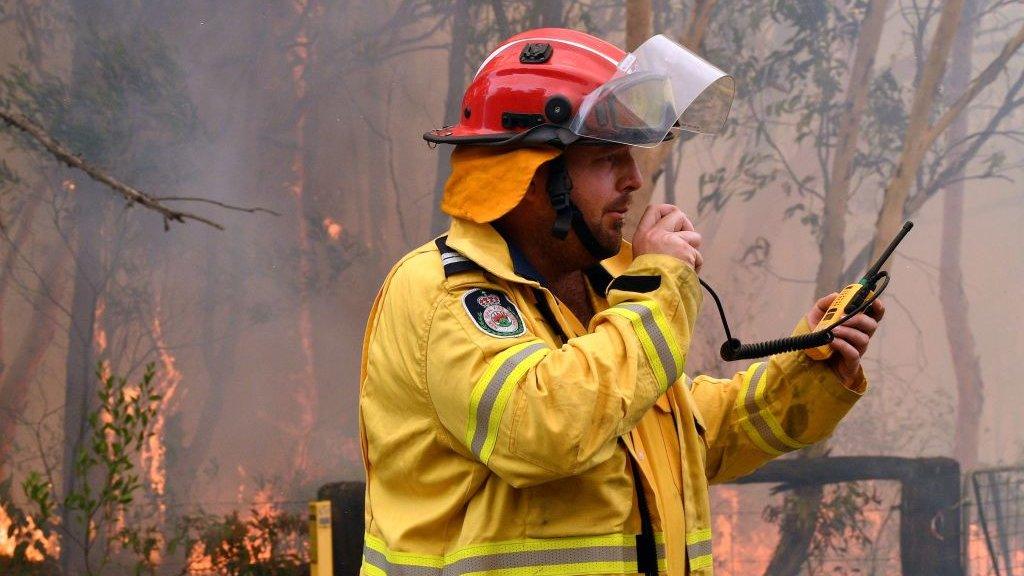Australia fires: Vineyard owner's grief and determination
- Published
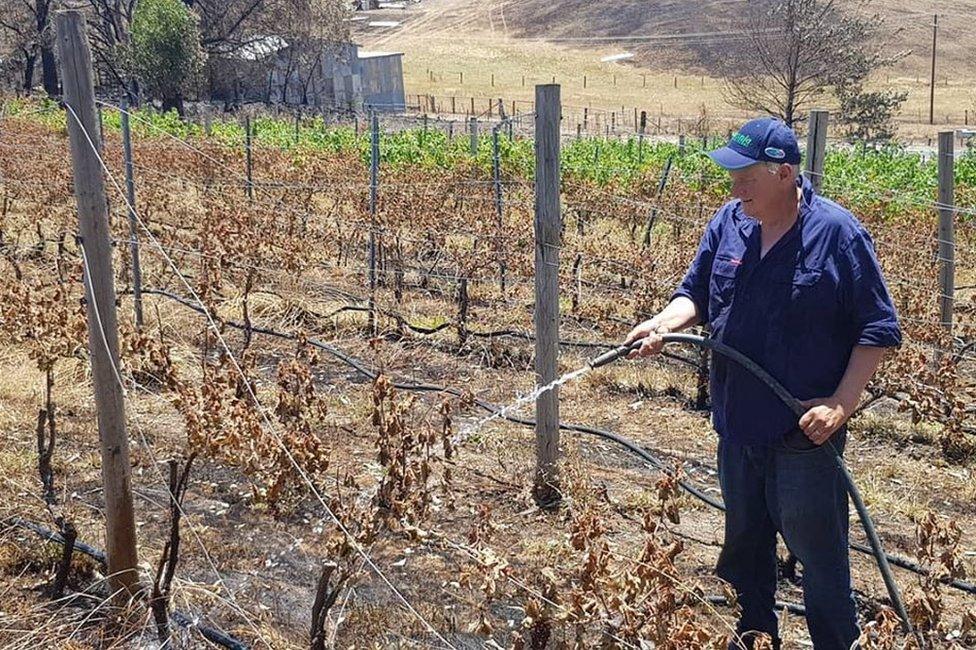
James Tilbrook says his losses may run into hundreds of thousands of dollars
Australia's deadly wildfires have devastated huge swathes of territory and left thousands homeless. Many businesses have also been destroyed, among them vineyards which have taken generations to grow, as the BBC's Peter Hoskins writes.
"It's a bit like losing a parent, a mother or father," says James Tilbrook.
He is no stranger to wildfires. The Adelaide Hills region, where his winery and vineyard once stood, had twice been hit by major blazes in the two decades he's tended this land.
When smoke appeared on the horizon on the morning of 20 December he knew it was going to be bad but could only hope his 20 acres (8 hectares) would again be spared.
As the flames grew closer there was nothing that could be done but flee the fire. He returned to a scene of almost total devastation.
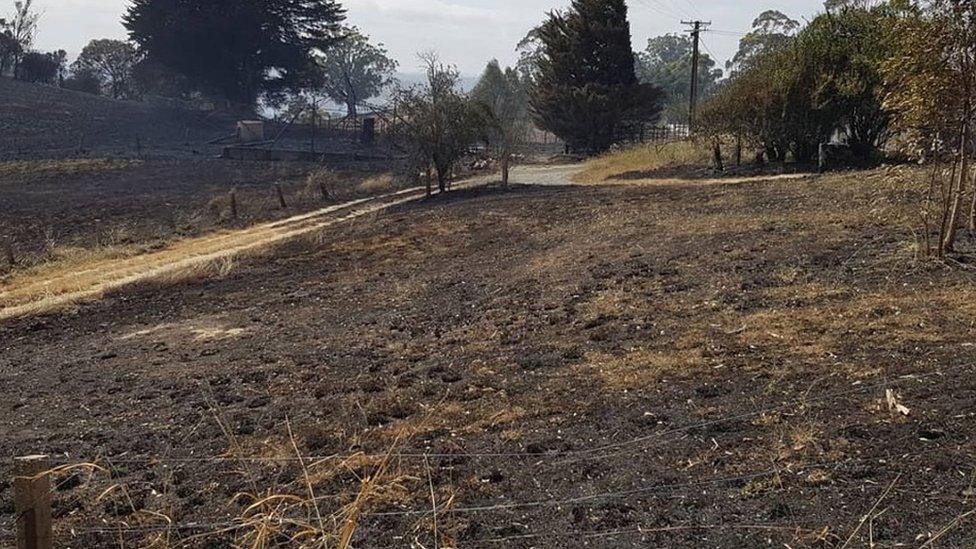
The scene of devastation when James Tilbrook returned to his vineyard
"I started looking around me, and all the land was black."
For him, the emotional impact was akin to losing a close family member and the grieving process that follows.
"You know, the very first day that it happens, or maybe up to a week afterwards, you're absolutely in shock and then you go to the funeral... and it's another shock."
Within a matter of hours the Tilbrook family had been left without a livelihood, as well as facing the huge cost of replacing what had been lost in the fire.
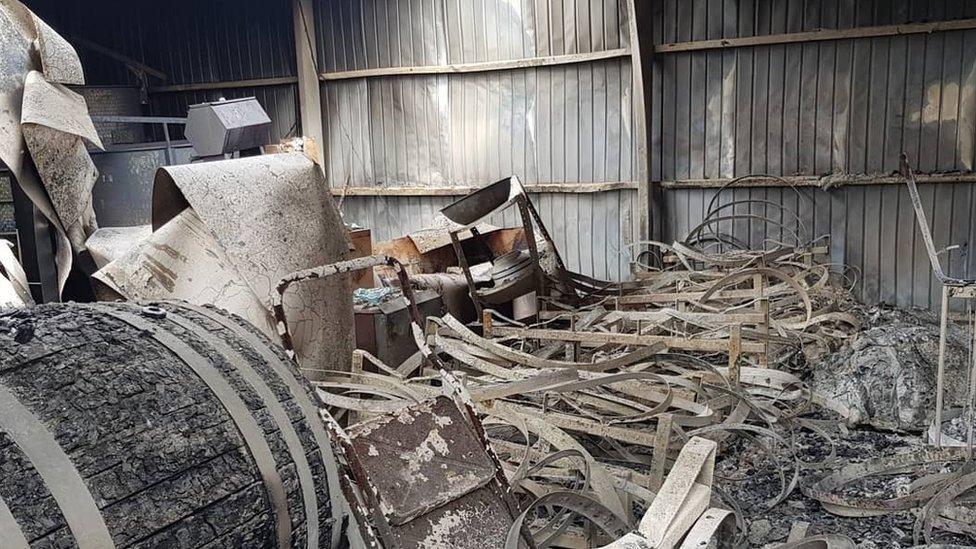
Fire completely destroyed James Tilbrook's winery on 20 December
"From the business point of view, we've lost our income, we've lost our livelihood."
"I'm reckoning that two years-worth of income, plus the equipment, conservatively, is about half a million (Australian) dollars (£262,800; $344,000).
"Then there's all the cost of the vineyard... potentially another $200,000... You're talking about $700,000."
Much left to burn
Mr Tilbrook's story is one that has been seen time and time again as the bushfires swept across Australia, hitting large parts of the wine industry.
Since September, at least 27 people have died in fires, which have destroyed more than 10 million hectares across the country.
The fires, and the severe drought that contributed to them, is seriously affecting producers, according to industry lobby group Australian Grape and Wine.
Tony Battaglene, the group's chief executive told the BBC that the situation may not improve any time soon.
"I wish the worst was behind us. Our bushfire season in Australia traditionally starts around December and will go on for three or four months. We have started very early this year, so it's very early days indeed."
"From the photos and the pictures you'll see, it doesn't seem like there's a lot more to burn, but I can assure you there is."
Australian Grape and Wine says Queensland and the Adelaide Hills region have been hit particularly hard.
In Queensland it predicts that production for 2020 is likely to be a fraction of last year's due to water shortages.
The fires have also potentially wiped out a third of wine production in the Adelaide Hills region, according to the area's industry association.
Of the region's 3,300 hectares of vineyards, around 1,100 hectares have been directly affected by the bushfires.
Producers don't just face the direct impact of the blazes but also smoke damage, or so-called "smoke taint".
Bushfire smoke can permeate the skin of the grapes as they ripen, causing wine to have an unpleasant smoky taste.
'Battle on... keep trying'
Geoff Weaver owns a vineyard at Lenswood, high in the Adelaide Hills, which was also damaged in December.
He told the BBC: "We've lost all our sheds and equipment. We've also lost about 30% of our vines."
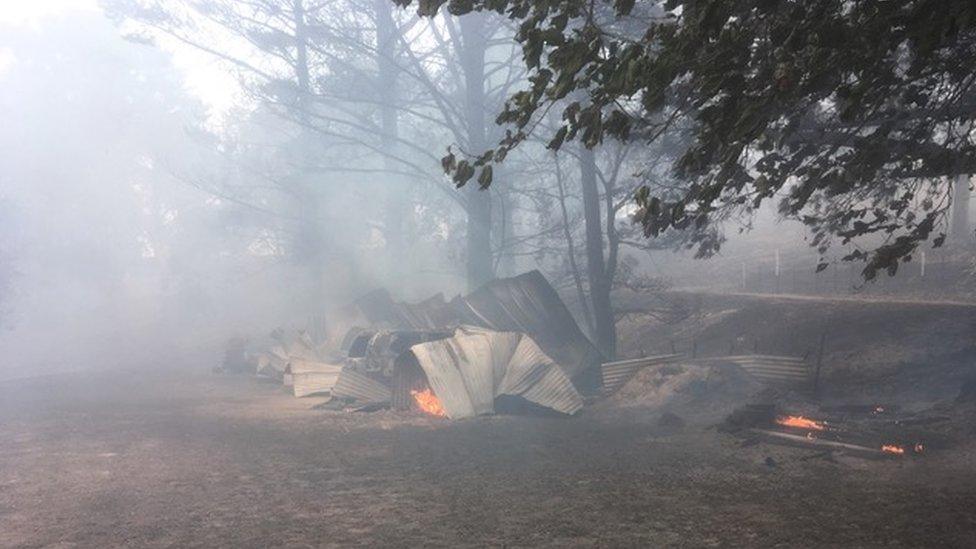
Geoff Weaver Wines lost all of its sheds and equipment to fire in December
He said, for that third of his vines: "We've lost this year's crop, the 2020 crop. We'll also lose the 2021."
But Mr Weaver sent a defiant message to his fellow winemakers, telling them: "Battle on. Keep trying to make the best wine you possibly can and challenge the world markets with the best wines we can make in Australia."
That spirit of determination was echoed by James Tilbrook.
Allow Facebook content?
This article contains content provided by Facebook. We ask for your permission before anything is loaded, as they may be using cookies and other technologies. You may want to read Meta’s Facebook cookie policy, external and privacy policy, external before accepting. To view this content choose ‘accept and continue’.

He said he'd been overwhelmed by how many people had rallied round to help rebuild his vineyard and winery.
"A mixture of anger getting angry about stuff that you shouldn't really get angry about, tears when you get upset about stuff but joy at the same time that you've got these little wins, and also faith in humanity that people are there to help."
Much of that support has come through the vineyard's Facebook page, with professionals from electricians to lawyers offering expertise, and materials, as well as people who just came along to help out.
"I've basically put out posts that have been shared and shared and shared and shared again. As a result we've had a lot of volunteers, we've had about a hundred so far."
"We definitely couldn't have done it without all these people."
- Published31 January 2020
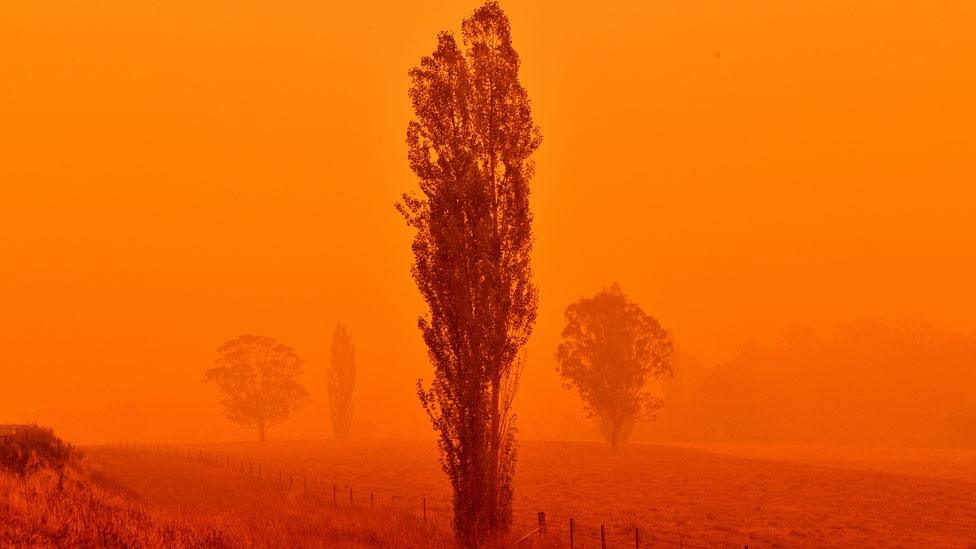
- Published7 January 2020
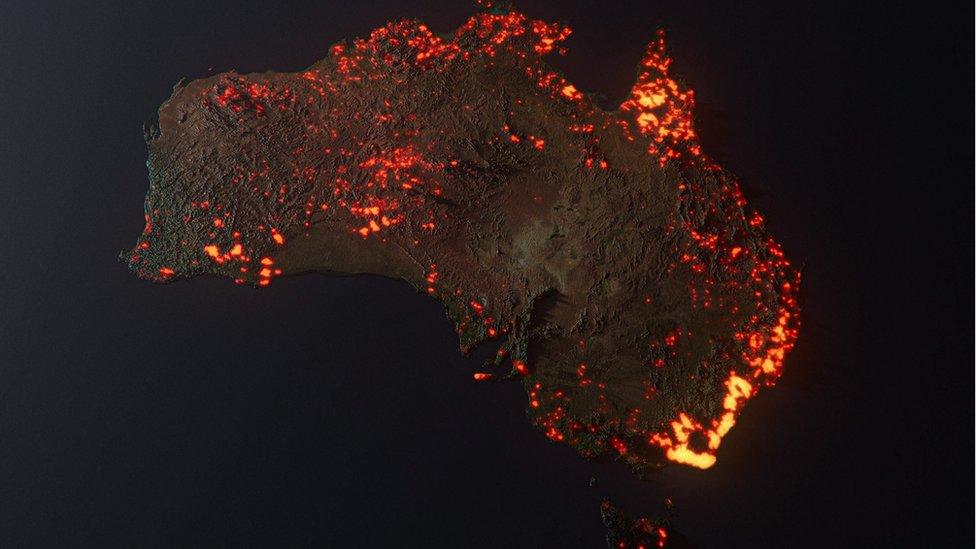
- Published11 November 2019
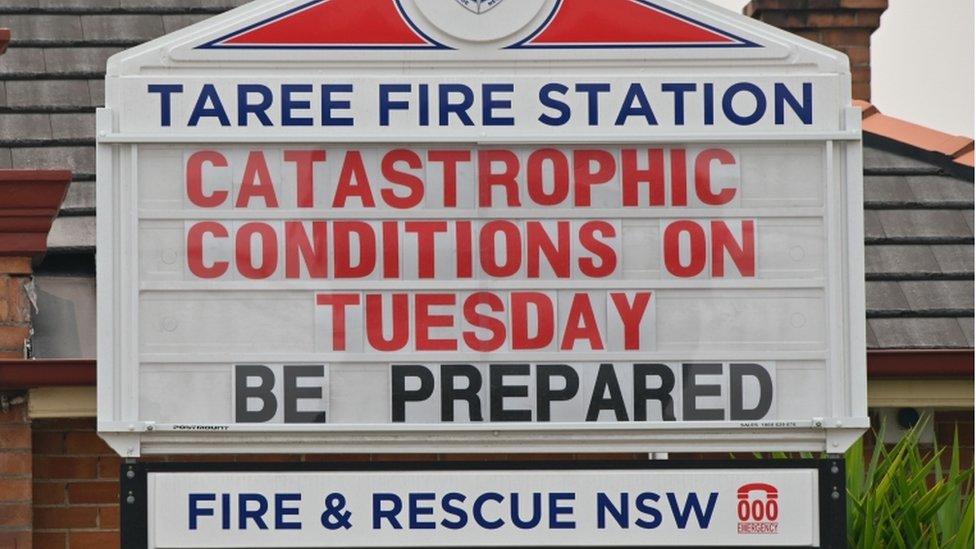
- Published7 January 2020
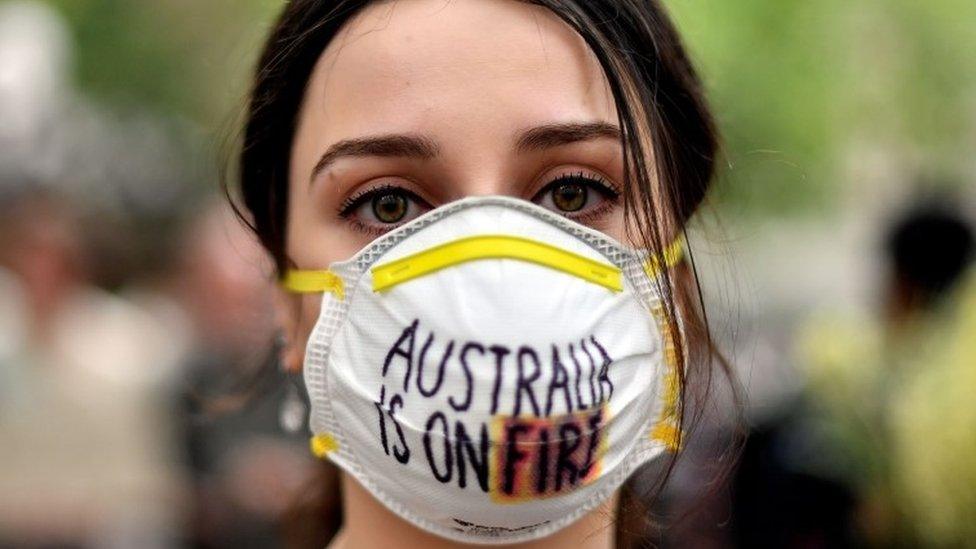
- Published9 January 2020
